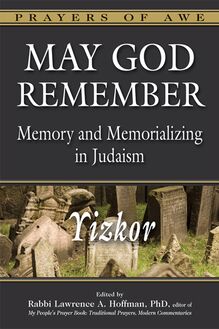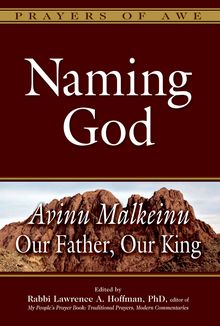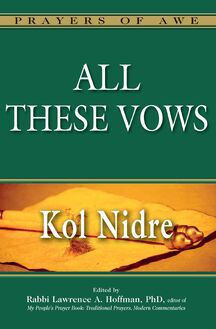-
 Univers
Univers
-
 Ebooks
Ebooks
-
 Livres audio
Livres audio
-
 Presse
Presse
-
 Podcasts
Podcasts
-
 BD
BD
-
 Documents
Documents
-
- Cours
- Révisions
- Ressources pédagogiques
- Sciences de l’éducation
- Manuels scolaires
- Langues
- Travaux de classe
- Annales de BEP
- Etudes supérieures
- Maternelle et primaire
- Fiches de lecture
- Orientation scolaire
- Méthodologie
- Corrigés de devoir
- Annales d’examens et concours
- Annales du bac
- Annales du brevet
- Rapports de stage
La lecture à portée de main
Vous pourrez modifier la taille du texte de cet ouvrage
Découvre YouScribe en t'inscrivant gratuitement
Je m'inscrisDécouvre YouScribe en t'inscrivant gratuitement
Je m'inscrisEn savoir plus
Vous pourrez modifier la taille du texte de cet ouvrage
En savoir plus

Description
A varied and fascinating look at sin, confession and pardon in Judaism.
Through a series of lively introductions and commentaries, almost forty contributors—men and women, scholars, rabbis, theologians and poets, representing all Jewish denominations—examine the history of confession in Judaism, its roots in the Bible, its evolution in rabbinic and modern thought, and the very nature of confession for men and women today.
Featuring the traditional prayers—provided in the original Hebrew and a new and annotated translation—this third volume in the Prayers of Awe series explores the relevance of confession today in what is bound to be the most up-to-date, comprehensive and insightful reconsideration of sin and confession in Judaism.
Acknowledgments ix
Part I Sin and Confessi on in Judais m:
From the Bible to Today
The Liturgy of Confession: What It Is and Why We Say It 3
Rabbi Lawrence A. Hoffman, PhD
From Penitence to Nobility: Modes of Jewish Piety 13
Rabbi Lawrence A. Hoffman, PhD
Sin, Sanction, and Confession in the Bible 32
Dr. Marc Zvi Brettler
The Problem of Repentance: A Dilemma in Late Medieval
Sephardic Preaching 39
Rabbi Marc Saperstein, PhD
Six Understandings of Confession for Our Time 46
Dr. Annette M. Boeckler
Al Chet in Israeli Culture: Israeli Confessions over Everything 60
Rabbi Dalia Marx, PhD
Part II Ashamnu and Al Chet:
The Yom Kippur Liturgy of Confessi on
Editor's Introduction 91
Rabbi Lawrence A. Hoffman, PhD
Translator's Introduction 92
Dr. Joel M. Hoffman
Annotated Translation 94
Dr. Joel M. Hoffman
A. Preamble to Confession
(Ki Anu Amekha, "For We Are Your People") 94
B. Vidui Zuta: The Short Confession
(Ashamnu, "We Have Been Guilty ...") 96
C. Vidui Rabbah: The Long Confession
(Al Chet, "For the Sin ...") 98
Part III Ashamnu and Al Chet:
As Prayer Book Editors See Them
Finding Ourselves in God 111
Rabbi Elyse D. Frishman
Multiplying the Sins 115
Rabbi Andrew Goldstein, PhD
For the Sin of “Unattempted Loveliness” 119
Rabbi Edwin Goldberg
Manifesting as Jews 123
Rabbi Jonathan Magonet, PhD
From Staid Sins of Yesteryear to Wrongdoings of Today 128
Rabbi Charles H. Middleburgh, PhD
“Our Sins? They're Not All Mine!” 134
Rabbi David A. Teutsch, PhD
Part IV Ashamnu and Al Chet:
Interpretations for Today
We Are All Unrepentant Humanists 141
Rabbi Tony Bayfield, CBE, DD
Forgiving God 146
Rabbi Will Berkovitz
For the Sin of … Poor Leadership 150
Dr. Erica Brown
We Can’t Really Be That Evil! 155
Rabbi Lawrence A. Englander, DHL
We Have Sinned: T’shuvah in a Globalized World 160
Lisa Exler and Ruth Messinger
The Power of Words: Radical Creation, Radical Atonement 164
Rabbi Shoshana Boyd Gelfand
What We Learn from Having So Many Sins 168
Dr. Joel M. Hoffman
From First Confession to Perfection of Character 171
Rabbi Walter Homolka, PhD, DHL
The Jewish “ABC Song” 176
Rabbi Delphine Horvilleur
Aval Chatanu (“But / In Truth, We Have Sinned”):
A Literary Investigation 181
Rabbi Elie Kaunfer
Confession and Its Discontents 186
Rabbi Reuven Kimelman, PhD
On Hitting Yourself 191
Rabbi Lawrence Kushner
What We Do Not Know 196
Rabbi Noa Kushner
Vidui and Its Halakhic Contexts 199
Rabbi Daniel Landes
Putting the Performance of the Vidui in Its Context 205
Rabbi Ruth Langer, PhD
Back to Zero 210
Catherine Madsen
Secrets and Silence:
The Hidden Power of the Un-confessional Vidui 214
Rabbi Jay Henry Moses
The Remembrance of Things Past (and Future),
Private (and Public) 218
Rabbi Aaron D. Panken, PhD
Can “Sin” Be Redeemed? New Metaphors for an Old Problem 222
Rabbi Jeffrey K. Salkin, DMin
“Later He Realizes His Guilt” 227
Rabbi Jonathan P. Slater, DMin
Some Are Guilty, All Are Responsible 232
Dr. Ellen M. Umansky
Sin, Confession, and … Forgiveness? 235
Rabbi Margaret Moers Wenig, DD
Percussing the Heart 240
Dr. Ron Wolfson
Al Chet Shechatanu: Collectively We Own Them All 242
Rabbi Daniel G. Zemel
Trying to Say Something, Something:
Magnolia and Confession 246
Dr. Wendy Zierler
Appendix A: The Personal Prayers of the Rabbis
(Talmud, Berakhot 16b–17a) 251
Appendix B: Confessions of the Rabbis (Talmud, Yoma 87b) 254
Notes 256
Glossary 270
Sujets
Informations
| Publié par | Turner Publishing Company |
| Date de parution | 01 août 2012 |
| Nombre de lectures | 0 |
| EAN13 | 9781580236751 |
| Langue | English |
| Poids de l'ouvrage | 3 Mo |
Informations légales : prix de location à la page 0,0850€. Cette information est donnée uniquement à titre indicatif conformément à la législation en vigueur.
Extrait
Other Jewish Lights Books by Rabbi Lawrence A. Hoffman, PhD
My People s Prayer Book: Traditional Prayers, Modern Commentaries, Vols. 1–10
My People s Passover Haggadah: Traditional Texts, Modern Commentaries, Vols. 1 & 2 (coedited with David Arnow, PhD)
The Art of Public Prayer, 2nd Ed.: Not for Clergy Only (A book from SkyLight Paths, Jewish Lights sister imprint)
Rethinking Synagogues: A New Vocabulary for Congregational Life
Israel—A Spiritual Travel Guide: A Companion for the Modern Jewish Pilgrim
The Way Into Jewish Prayer
What You Will See Inside a Synagogue (coauthored with Dr. Ron Wolfson)
Also in the Prayers of Awe Series
Who by Fire, Who by Water—Un taneh Tokef
All These Vows—Kol Nidre
Contents
Acknowledgments
Part I Sin and Confession in Judaism: From the Bible to Today
The Liturgy of Confession: What It Is and Why We Say It
Rabbi Lawrence A. Hoffman, PhD
From Penitence to Nobility : Modes of Jewish Piety
Rabbi Lawrence A. Hoffman, PhD
Sin, Sanction, and Confession in the Bible
Dr. Marc Zvi Brettler
The Problem of Repentance : A Dilemma in Late Medieval Sephardic Preaching
Rabbi Marc Saperstein, PhD
Six Understandings of Confession for Our Time
Dr. Annette M. Boeckler
Al Chet in Israeli Culture : Israeli Confessions over Everything
Rabbi Dalia Marx, PhD
Part II Ashamnu and Al Chet: The Yom Kippur Liturgy of Confession
Editor s Introduction
Rabbi Lawrence A. Hoffman, PhD
Translator s Introduction
Dr. Joel M. Hoffman
Annotated Translation
Dr. Joel M. Hoffman
A. Preamble to Confession (Ki Anu Amekha, For We Are Your People )
B. Vidui Zuta: The Short Confession (Ashamnu, We Have Been Guilty ... )
C. Vidui Rabbah: The Long Confession (Al Chet, For the Sin ... )
Part III Ashamnu and Al Chet: As Prayer Book Editors See Them
Finding Ourselves in God
Rabbi Elyse D. Frishman
Multiplying the Sins
Rabbi Andrew Goldstein, PhD
For the Sin of Unattempted Loveliness
Rabbi Edwin Goldberg
Manifesting as Jews
Rabbi Jonathan Magonet, PhD
From Staid Sins of Yesteryear to Wrongdoings of Today
Rabbi Charles H. Middleburgh, PhD
Our Sins? They re Not All Mine!
Rabbi David A. Teutsch, PhD
Part IV Ashamnu and Al Chet: Interpretations for Today
We Are All Unrepentant Humanists
Rabbi Tony Bayfield, CBE, DD
Forgiving God
Rabbi Will Berkovitz
For the Sin of … Poor Leadership
Dr. Erica Brown
We Can t Really Be That Evil!
Rabbi Lawrence A. Englander, DHL
We Have Sinned : T shuvah in a Globalized World
Lisa Exler and Ruth Messinger
The Power of Words : Radical Creation, Radical Atonement
Rabbi Shoshana Boyd Gelfand
What We Learn from Having So Many Sins
Dr. Joel M. Hoffman
From First Confession to Perfection of Character
Rabbi Walter Homolka, PhD, DHL
The Jewish ABC Song
Rabbi Delphine Horvilleur
Aval Chatanu ( But / In Truth, We Have Sinned ) : A Literary Investigation
Rabbi Elie Kaunfer
Confession and Its Discontents
Rabbi Reuven Kimelman, PhD
On Hitting Yourself
Rabbi Lawrence Kushner
What We Do Not Know
Rabbi Noa Kushner
Vidui and Its Halakhic Contexts
Rabbi Daniel Landes
Putting the Performance of the Vidui in Its Context
Rabbi Ruth Langer, PhD
Back to Zero
Catherine Madsen
Secrets and Silence : The Hidden Power of the Un-confessional Vidui
Rabbi Jay Henry Moses
The Remembrance of Things Past (and Future), Private (and Public)
Rabbi Aaron D. Panken, PhD
Can Sin Be Redeemed? : New Metaphors for an Old Problem
Rabbi Jeffrey K. Salkin, DMin
Later He Realizes His Guilt
Rabbi Jonathan P. Slater, DMin
Some Are Guilty, All Are Responsible
Dr. Ellen M. Umansky
Sin, Confession, and … Forgiveness?
Rabbi Margaret Moers Wenig, DD
Percussing the Heart
Dr. Ron Wolfson
Al Chet Shechatanu : Collectively We Own Them Al
Rabbi Daniel G. Zemel
Trying to Say Something, Something : Magnolia and Confession
Dr. Wendy Zierler
Appendix A: The Personal Prayers of the Rabbis (Talmud, Berakhot 16b–17a)
Appendix B: Confessions of the Rabbis (Talmud, Yoma 87b)
Notes
Glossary
About the Editor
About the Series: Prayers of Awe
Copyright
Also Available
About Jewish Lights
Send Us Your Feedback
Acknowledgments
As with previous volumes in this series, I begin by acknowledging the many worshipers for whom the High Holy Days are central to their Jewish consciousness. To these worshipers in general, I add the many colleagues, artists, composers, poets, philosophers, theologians, and critics who lend more technical voices to the conversation. Many of them are included here. To them—to all the contributors whose commentaries find their way into this volume—I am grateful.
I continue to be blessed with support from my extraordinary publisher, Stuart M. Matlins, founder of Jewish Lights, and from Emily Wichland, vice president of Editorial and Production there. It was Stuart who first approached me with the idea for the Prayers of Awe series, as suggested to him by Dan Adler in response to a High Holy Day program developed by Rob Eshman, editor in chief of the Jewish Journal of Greater Los Angeles , and David Suissa. Their program sprang from an idea first conceived by Rabbi Elazar Muskin of Young Israel of Century City. Emily continues to amaze me in all she does: her abundant wisdom, skill, patience, and perseverance are precisely what an author most desires. For her copyediting and proofreading, my thanks go again to Debra Corman. I happily include as well all the others at Jewish Lights, especially Tim Holtz, director of Production, who designed the cover for this book and typeset the English text.
Special mention should be made of Rabbi Dalia Marx, PhD, whose contribution here includes references to the work of many contemporary authors and poets in Israel, all of whom demonstrate the remarkable power of Al Chet as a cultural icon in Judaism. Rabbi Marx cites the work of Rabbi Moti Rotem; Aryeh Uri; Buja Yogev, whose work was made available through Mekhon Shitim, the archive and educational center of the kibbutz movement, located on Kibbutz Bet Hashitah; Rabbi Arik Asherman; Michael Brizon; Ruvik Rosenthal; an anonymous composer of the confession for drivers, bikers, and pedestrians ; Rivka Lubitch; and a composition from Irgun Lim ni at Hitbol lut B eretz Hakodesh and Moshe Meir. Dr. Joel M. Hoffman worked assiduously to translate the traditional confessional liturgy. In addition, he rendered this very difficult material into English, thereby giving English-speaking readers their first opportunity to see the enormous creativity that the work represents. We should be enormously grateful to all the authors mentioned and to Dr. Hoffman for devoting time and expertise to this project.
The Liturgy of Confession
What It Is and Why We Say It
Rabbi Lawrence A. Hoffman, PhD
Confronting our shortcomings may be central to the religious temperament. One wonders, in fact, why atheistic attacks on religion do not credit religion at least for this, since all the great religions, it would seem, have at least some mechanism by which adherents are urged to take moral inventory of their faults. Judaism certainly does, and it calls those faults sins, thereby indicating that they are more than just issues of defective calculation or wrongheaded planning. They run counter to the will of God; they are not the way human beings are supposed to live. People have problems with the word sin these days—a problem that is addressed in this book s next chapter (see Hoffman, pp. 8 – 26 ). But for purposes of this overview, we can use the traditional term, noting simply that Judaism has resolutely insisted on the reality of God, the ubiquity of sin, and the necessity for human beings to atone for sin by one means or another.
The primary means in biblical days was personal sacrifice (see Brettler, pp. 27 – 33 ). With the rise of Rabbinic Judaism, however, prayer replaced sacrifice, and the offerings of our lips (as the Rabbis put it) took the place of grains and animals that had once been offered on an actual altar. One form of verbal sacrifice was confession, the Hebrew term for which is vidui .
We think of confession as an annual exercise for Yom Kippur, but the Rabbis did not limit it to that occasion. Without necessarily believing that human beings are innately evil (in the sense of suffering from original sin), they did believe that sin is elemental—it is sufficiently part of our nature for us to confess it regularly. Our first comprehensive Jewish prayer book, Seder Rav Amram (from about 860 CE) draws upon the Talmud to make room for a confession every single day. As its author, Rav Amram, puts it, If a person wants to say a confession after completing the daily Amidah , it is permissible to do so.
But Amram goes farther. He includes a sample of what one might say, drawn largely from Talmudic example, starting with a request for the Temple to be rebuilt and sacrifice to be reinstituted. The topic is fitting at this point in the service, since worshipers would just have completed the Amidah , which they believed to have been instituted only for the interim historical era during which the sacrificial system was unavailable. They would have ended their daily Amidah with the thought that someday, ultimate redemption would bring a return to sacrifice. Quite noteworthy, however, is the rationale given for God s resto
-
 Univers
Univers
-
 Ebooks
Ebooks
-
 Livres audio
Livres audio
-
 Presse
Presse
-
 Podcasts
Podcasts
-
 BD
BD
-
 Documents
Documents
-
Jeunesse
-
Littérature
-
Ressources professionnelles
-
Santé et bien-être
-
Savoirs
-
Education
-
Loisirs et hobbies
-
Art, musique et cinéma
-
Actualité et débat de société
-
Jeunesse
-
Littérature
-
Ressources professionnelles
-
Santé et bien-être
-
Savoirs
-
Education
-
Loisirs et hobbies
-
Art, musique et cinéma
-
Actualité et débat de société
-
Actualités
-
Lifestyle
-
Presse jeunesse
-
Presse professionnelle
-
Pratique
-
Presse sportive
-
Presse internationale
-
Culture & Médias
-
Action et Aventures
-
Science-fiction et Fantasy
-
Société
-
Jeunesse
-
Littérature
-
Ressources professionnelles
-
Santé et bien-être
-
Savoirs
-
Education
-
Loisirs et hobbies
-
Art, musique et cinéma
-
Actualité et débat de société
- Cours
- Révisions
- Ressources pédagogiques
- Sciences de l’éducation
- Manuels scolaires
- Langues
- Travaux de classe
- Annales de BEP
- Etudes supérieures
- Maternelle et primaire
- Fiches de lecture
- Orientation scolaire
- Méthodologie
- Corrigés de devoir
- Annales d’examens et concours
- Annales du bac
- Annales du brevet
- Rapports de stage











